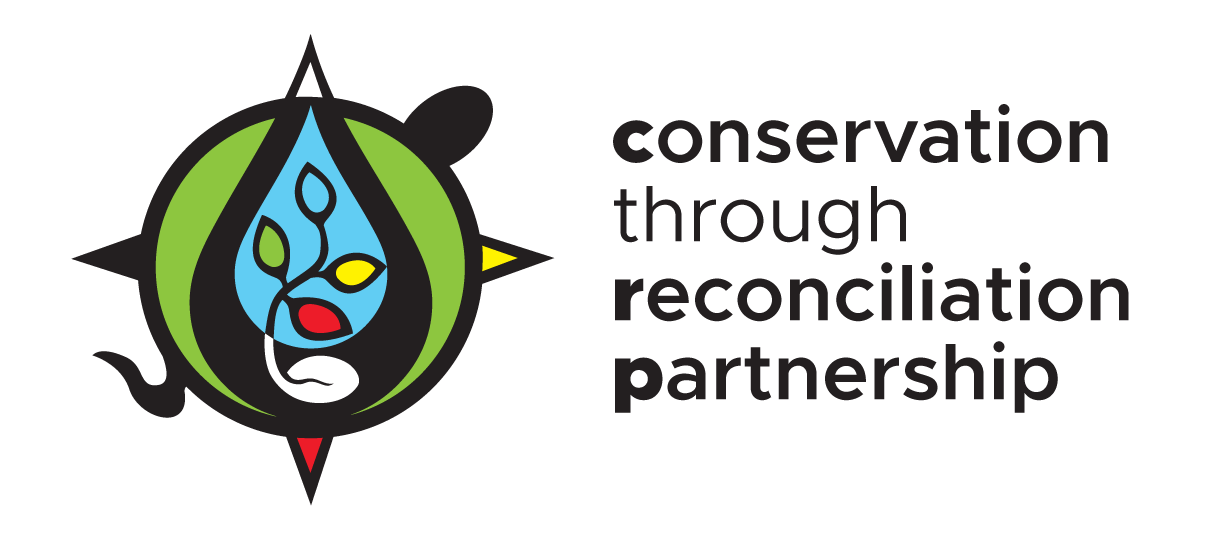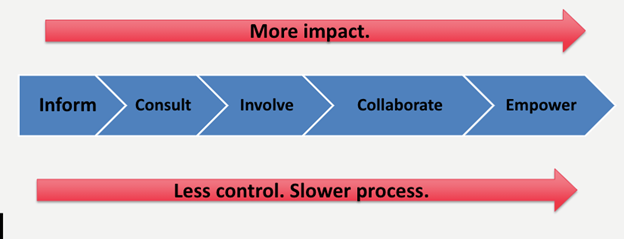Little Things that Matter in Decolonization and Anti-oppression Struggles: Lessons from the Community Engaged Scholarship Institute summer school for emerging scholars
By Emmanuel N. Tamufor, PhD student, Department of Geography, Environment and Geomatics/Guelph Institute of Development Studies, University of Guelph
January 26, 2021
I am an African student from Cameroon. I am currently studying on the traditional territory of the Mississaugas of the Credit in Ontario, Canada as a visitor of the Anishinaabek Peoples. My decision to engage in Indigenous-led conservation research was motivated by work from my MA in Environmental Policy at the Environmental Policy Institute of Memorial University of Newfoundland. I was a friend to some Indigenous Peoples from Labrador who shared stories about their communities. Further research made me realize that we had many common realities of colonization and oppression. We equally share some cultural practices and relations with the environment. My understanding of colonialism in both the Canadian and Afro-Asian contexts and my disdain for injustice started orienting my education path. I started seeking knowledge that would help me contribute to true decolonization and socioeconomic justice in Canada and beyond. Dr. Robin Roth gave me the opportunity to acquire some of the knowledge through the Conservation through Reconciliation Partnership (CRP) project.
As a PhD student and student researcher on the CRP project, I try to seize every learning opportunity that would improve my skills and knowledge about community and Indigenous-led projects. The Critical Community Engaged Scholarship Summer Intensive organized by the Community Engaged Scholarship Institute (CESI) of the University of Guelph, the Conservation through Reconciliation Partnership project, and the Coastal Routes network was one of those opportunities. CESI is a CRP partner and is a University of Guelph institution that brings together community and campus skills and resources in order to advance community-identified research goals. Coastal Routes is a network of researchers, coastal communities, and non-profit organizations all united by a mission of supporting green, sustainable, and just coastal livelihoods and places.
The one-week summer intensive took place from August 17 – 21, 2020 online because of Covid19 challenges. Researchers, especially student researchers from the Coastal Routes network and the CRP project in universities all over Canada attended the workshop/webinar through Zoom.
The main goal of the workshop was to teach students how to plan and do ethical and sustainable research in collaboration with community and mobilize knowledge to achieve meaningful social change. The workshop was divided into modules and lab sessions. The module sessions provided students with foundational content and insights from experts on key knowledges, skills, principles, and practices of critical community engaged scholarship (CES) and knowledge mobilization. The lab sessions, which were more engaging, provided students with the opportunity to apply and practice foundational knowledges, skills, and principles of critical CES and knowledge mobilization to case studies, and their own research.
Towards Decolonization and Anti-oppression
Figure 1 credit: Dr. Melissa Tanti (2020). Moving Bravely Forward: Anti-Oppression Strategies for Critical Community Engagement. PowerPoint presentation at the CESI summer intensive for emerging scholars.
Efforts to advance decolonization and reconciliation have in recent years occupied an important place in public policies, academic platforms, and social life in Canada. Steps are being taken in many institutions to implement some of the recommendations made by the Truth and Reconciliation Commission in its final report delivered in 2015. There are also ongoing efforts to empower Indigenous-led institutions while dismantling colonial structures that perpetuate colonial systems, white supremacy, discrimination against Indigenous Peoples, and other racialized people and marginalized groups. It is in line with these ongoing efforts that the Conservation through Reconciliation Partnership project partnered with the Community Engaged Scholarship Institute (CESI), and the Coastal Routes network organized a summer intensive for emerging scholars.
Actions geared towards the dismantling of colonial structures, institutions, practices, research and education systems, environmental protection strategies, etc., tend to focus on bigger issues such as policies, treaties, racism and so on, while the so-called: minor issues” continue to affect our wellbeing daily. Microaggressions, oppressive and supremacist attitudes highlighted by Dr. Melissa Tanti, Community Engaged Learning Coordinator of Community Engaged Scholarship Institute (CESI), University of Guelph, are examples of oppression that need our attention. She suggested that the will to create not just a safe space, but a brave space where every ethnicity, minority group, those who contend with colonial pasts, etc. can express themselves without fear or favor should be the way forward. Melissa’s presentation outlined three faces of oppression which need to be understood and tactfully managed in decolonization and anti-oppression efforts.
Key Lessons from the Summer School
Figure 2 credit: Elizabeth Shantz (2020). Co-Creating and Mobilizing Knowledge for Change. PowerPoint presentation at the CESI summer intensive for emerging scholars.
Why is knowledge mobilization important? Everyone has a story which needs to be told. Stories told by those who were present and those who impacted are important in research. In most cases, history is often narrated by the oppressors since the oppressed have very limited ‘recognized’ platforms to express themselves without being undermined. Knowledge mobilization creates a platform of “collaboration, engagement, mutual exchange and co-creation of knowledge throughout the research process” (Lindsey Thomson). Knowledge mobilization is defined by CESI and Social Sciences and Humanities Research Council (SSHRC) as follows: “Knowledge mobilization relates to the flow of knowledge and information among multiple individuals and groups, leading to intellectual, social, and economic benefits. Knowledge mobilization aims to allow the exchange of research knowledge both between university researchers and the wider community and across different academic disciplines”. Knowledge mobilization bridges knowledge gaps created by mostly those in power who systematically rejected knowledge from colonized, racialized, oppressed, and marginalized peoples.
The knowledge held by marginalized people can greatly contribute to society’s wellbeing, but since it is not codified and packaged the way western systems easily understand, it is often suppressed. Thankfully, it is now emerging through neglected research methods such as storytelling, arts-based research methods, ethnographic studies (which involves the study of a community’s everyday life in relation to a particular issue), etc. 21st century scholars have the responsibility to incorporate these ways of knowing society and the world into their research. This will contribute more to scholarly and societal progress. I believe that modern-day researchers would gain more if they look beyond colonial systems and mobilize knowledge from every knowledge holder of society for common good. Knowledge mobilization from communities or non-academic milieus helps researchers to inform research with the Two-eyed seeing approach, which braids western sciences and Indigenous knowledge. This approach goes beyond racism, cultures biases, and other factors limiting research that seeks to expose and fix societal problems. It has more impact and empowers more thanks to collaboration and consultation as seen in the figure below.
Academic Institutions have a Key Role to Play in Decolonization and Anti-oppression Efforts
The Canadian school system has to incorporate studies on colonization, decolonization, anti-racism, anti-oppression, and the respect of every human being. Free discussions on anti-racism and anti-oppression are gradually gaining ground in academic milieus, especially in universities which according to Shelley Denny, Director of Aquatic Research and Stewardship with the Unama’ki Institute of Natural Resources on Cape Breton Island, should be the pivot of inclusive education for society. Academic and administrative institutions are called upon to continue creating safe and brave spaces where colonial and superiority mindsets can be challenged as we bravely move forward. By so doing, decolonization and anti-oppression crises may be handled before street actions takeover the issues to dictate what to do.
We are at a critical stage in North American and global history where racial tensions seem to be rising. “Little things are beginning to matter.” We need to become mindful even of microaggressions. The way we address people and ask questions as seen in the image below may play a big role in decolonization, anti-racism and anti-oppression. Although issues about ‘Black’ communities are more resounding right now due to recent protests against racism, microaggressions affect other groups, cultures, and especially Indigenous folks in Canada and the USA.
Brave space creates room for justice. In British Columbia, the courts were able to create a safe or ethical space where equality could prevail over supremacist and colonial institutions for justice to be served. This made it possible for the Xeni Gwet'in First Nation in British Columbia to win the case against mining in protected areas of their territory. The joy with which Chief Marylin Baptiste (Member of the CRP Elders’ Lodge) expressed this victory by her community indicates that we need more of such spaces in Canada and beyond. By so doing, conflicts are reduced, and smiles are put on the faces of the oppressed.
Photo credit: The Association for the Advancement of Sustainability in Higher Education (AASHE)
The lessons learned from the CESI summer camp is greatly contributing to my research and daily life. I am already applying lessons from the workshop about microaggression in my daily interactions. When the Black Lives Matter movement became prominent, I, as a racialized person, was approached by friends and schoolmates who wanted to know how they can help in the anti-racist struggle. I didn’t know what to say because most previous efforts had borne no sustainable fruits. After the CESI workshop, I can now easily point to those little things like microaggression, which can be effectively addressed by individuals without necessarily waiting on big institutions and the government to take action. I am also better equipped with tools for community and institutional research, which I will start in 2021 as part of Ph.D. project.
Special thanks to Dr. Melissa Tanti, CESI, University of Guelph and Allison Bishop, CRP project manager, for their useful comments to the draft of this article.





